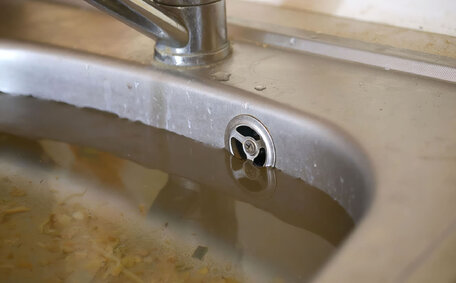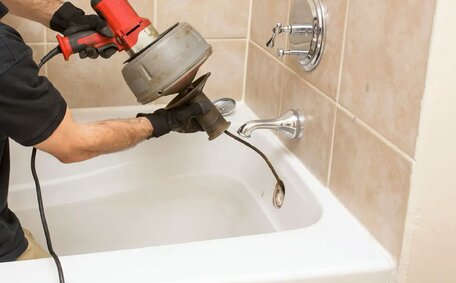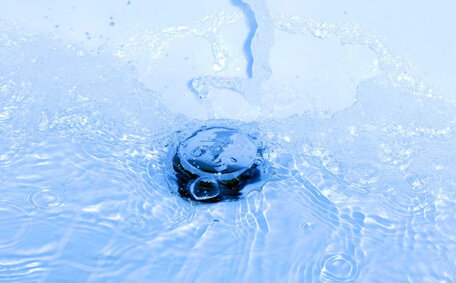Importance of Professional Gas Fitting for Businesses
The complexity of gas systems requires that installation and maintenance adhere to safety and regulatory compliance, necessitating the expertise of professionally trained and licensed gas fitters.
Gas plumbers complete extensive training and certification to handle safe gas systems efficiently. They make sure to adhere to stringent regulations and standards to prevent fires, explosions, and gas leaks that can severely disrupt business operations.
Australian businesses are legally mandated to ensure their gas fitting work complies with industry standards. Only licensed gas professionals can issue a gas compliance certificate after any gas installation repair or maintenance work, which businesses may need for insurance and liability purposes.
DIY gas plumbing not only endangers your premises but also breaches safety regulations. Our licensed and fully-compliant commercial gas fitting services enable businesses to meet all legal and safety requirements for their gas systems.
Our seasoned gas fitters, servicing both Sydney and the Hunter Valley, are committed to ensuring the safe and reliable operation of business gas appliances and piping systems. In Port Macquarie, we provide a range of maintenance services for gas appliances, ensuring business safety and regulatory compliance.
Hiring Licensed and Experienced Gas Fitters
It is critical to verify the licensing and comprehensive insurance of gas fitters for commercial projects. The service provider must have a nominated manager on staff with a Certificate III in Gas-fitting or higher qualification.
Hiring a fully certified and licensed gas fitter, with verified credentials, ensures dependable proficiency for your business.
Experienced commercial gas fitters will proactively provide the right gas licencing and insurance paperwork without being asked. If a provider hesitates or refuses to show documentation, it may indicate they don’t make sure gas work is carried out by qualified professionals.
Vetting commercial b gas fitters thoroughly upfront provides peace of mind that your systems will be serviced safely by qualified technicians, supporting continuity and compliance.
Regular Maintenance and Servicing of Gas Systems
Professional maintenance and servicing by qualified gas fitters is crucial for the safety and efficiency of your gas appliances and systems. We recommend businesses establish an annual servicing schedule with a range commercial gas fitting specialists who can manage all your plumbing needs.
During annual servicing, gas fitters conduct checks and tune-ups to ensure the installation and reliability of your gas systems, including:
- Gas pipes and gas fittings
- Valves and regulators
- Metres
- Appliances like efficient gas water heaters and hot water system solutions
- Flues and ventilation
- Safety devices like flame failure valves
- Leaks tests
Proactive maintenance of gas plumbing, including hot units, is key in addressing potential issues such as corrosion and blockages, thereby safeguarding performance and reliability. It also ensures any faults are identified before they become problematic or hazardous.
A gas fitter will consider all details when advising on the development of a custom maintenance plan for your gas systems, based on several factors:
- Equipment age and known issues
- Manufacturer servicing recommendations
- Usage patterns
Documenting this schedule provides accountability. During annual visits, the gas fitter can review and adjust the plan if required.
Negligent maintenance often leads to adverse, yet preventable problems; having a cost-effective plan with gas professionals can avoid these unexpected occurrences. Staying on top of servicing provides fail-safe business continuity and regulatory compliance.
Types of Gas Fitting Work for Businesses
As a business, you may require gas fitting services for various types gas networks and appliances:
- Installation gas line networks and sophisticated appliances
- Undertaking repair gas work or replacing existing gas equipment
- Relocating gas metres or pipes
- Converting appliance fuel to type gas
- Certification inspections of gas systems
Our licensed gas fitters are adept at installing a wide range of commercial gas equipment, from compact heaters to extensive industrial ovens, backed by significant industry experience. We also specialise in servicing and installing type b gas appliances like high-capacity gas heaters and gas-generated appliances:
- Commercial gas hot water systems
- Space heaters and heating units like high-efficiency gas heaters
- Generators
- BBQs and outdoor gas cooking kitchens
- Laboratory Bunsen burners
It’s critical any business gas fitting work is handled by licensed gas fitters to meet Australian standards for quality and safety. Faulty gas fitting can lead to hazardous leaks, fires, contamination, and equipment failure, significantly disrupting business operations.
Our commitment to rigorous compliance and superior installation and repair standards ensures the uninterrupted operation of your business’s gas systems.
Safety Standards and Compliance Certificates
Natural gas systems must adhere to strict standards outlined in the Safety Act, such as the Gas Supply Act 1996 and Gas Supply (Safety and Network Management) Regulation 2013.
Core need gas safety requirements for businesses include:
- Installation, servicing, and repair work completed only by a licensed gasfitter
- Routine gas system checks and maintenance
- Leak testing gas pipe connections
- Flame failure device installation on all gas appliances
- Adequate ventilation for combustion appliances
- Current compliance/safety certificates available when required
Upon completing any major gas installations or alteration work, Should a gas fitter come to certify systems, your business can rest assured they were done correctly and safely with a Certificate of Compliance.
Comprehending the responsibilities of a gas fitter is critical for businesses, especially since annual Gas Safety Checks, far from being a mere formality, are compulsory and conducted by your appointed gas fitter. This extensive inspection covers all aspects like leaks, corrosion, appliance function, ventilation and emergency controls.
Stringent checks and up-to-date compliance certification are crucial in preventing fires, explosions, poisoning, and non-fatal disasters. For businesses, lapsed compliance opens up extensive risks that include:
- Fines and prosecution
- Invalidation of insurance
- Civil lawsuits
- Reputational damage
By partnering with a conscientious gas fitting firm and sticking to maintenance routines, businesses remain safeguarded on all fronts when it comes to their legal and ethical gas safety obligations.
Avoiding the Dangers of DIY Gas Fitting
DIY gas fitting attempts expose businesses to significant hazards and contravene established regulations. When you use gas systems in your property, these contain highly combustible fuel under pressure, creating an ever-present danger if mishandled.
The consequences of unqualified gas fitting, especially electrical work, can be severe without proper training and licensing. Risks range from dangerous leaks to explosions and carbon monoxide poisoning—scenarios a skilled fitting electrical and gas plumber can take care to prevent, avoiding long-term health issues or even death.
Our intervention at mishandled DIY gas fitting jobs has averted disasters where business owners attempted cost-cutting measures. In one case, a restaurant owner caused a major gas leak attempting to replace old appliances without shutting off the main supply. In another, faulty DIY installation filled a workplace with dangerous levels of odourless carbon monoxide.
An ignition source could have resulted in an explosion.
These examples underscore why DIY attempts at LPG gas fitting and related systems entail unacceptable risks for businesses. Parts like regulators, valves and safety switches require high-precision installation not achievable through guesswork. And identifying leaks is a specialised skill.
We strongly advise businesses to employ qualified, licensed professionals to ensure all gas work complies with rigid quality and safety standards. The serious dangers posed by mishandled gas systems are simply not worth gambling with. Compliance and continuity depend on proper licenced servicing.
What to Do in a Gas Emergency
In emergency gas situations, immediate and meticulous intervention by a licensed gas fitter is essential to avert disaster. If you smell gas or suspect a leak, follow these steps:
- Evacuate the area immediately and move a safe distance away upwind. Instruct others to evacuate as well. Do not operate any switches or electronics that could spark an ignition.
- Dial 000 for emergency services to have gas technicians safely shut off and contain the leak.
- If safe to do so, turn off the main gas supply valve to your building until help arrives. Use caution not to ignite any gas.
- Do not re-enter the building until emergency crews confirm it’s safe. Even after shutting off the main valve, effective leak detection is essential as gas can still potentially escape.
- Contact our team, a cohesive unit of qualified licensed gas fitters, if you require a comprehensive natural gas inspection after the incident to ensure your systems meet the highest safety standards. We can ensure your systems are fully safe again after any repairs.
Our local team of adept gas fitters ensures timely action during gas leak emergencies, potentially saving critical moments. Leveraging our expert knowledge, we manage perilous situations competently, supported by specialised equipment and proper authorisation.
Trust in our expertise to get the job done accurately, guaranteeing your systems operate effectively while securing the safety of your premises and occupants. We know how to inspect repairs thoroughly and provide clearance certificates as needed after emergencies.






